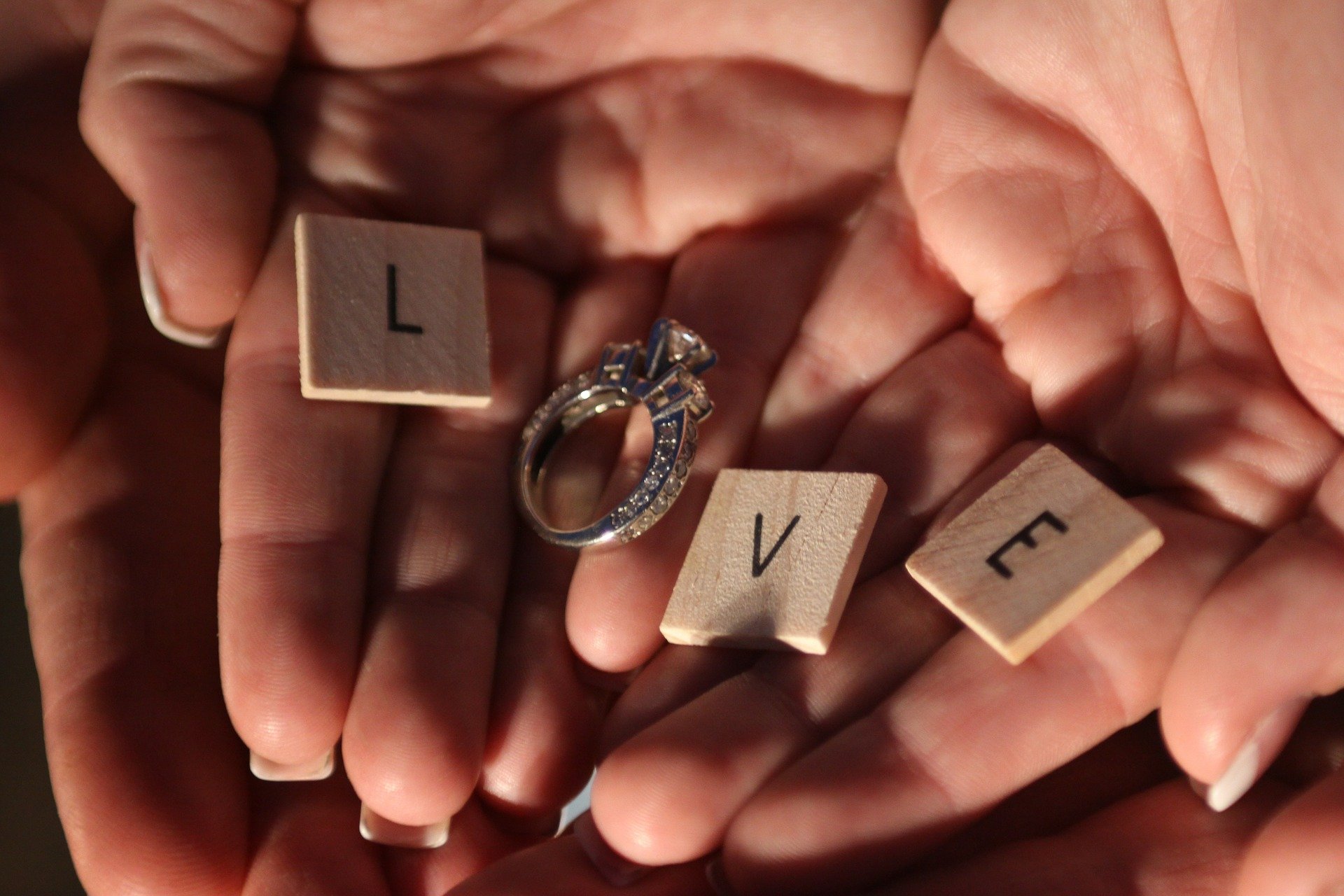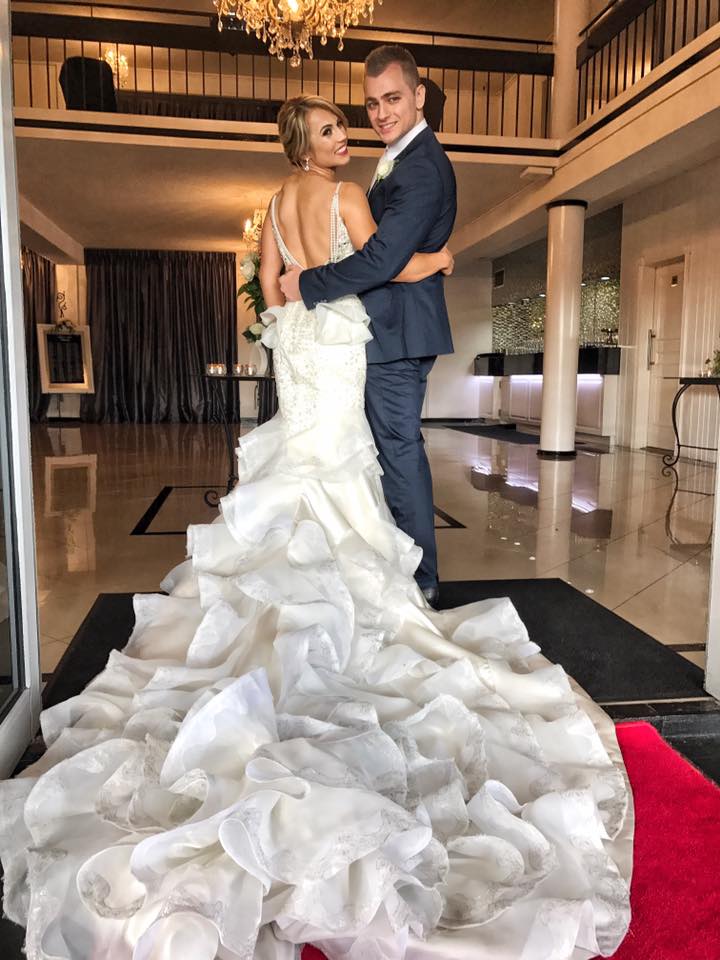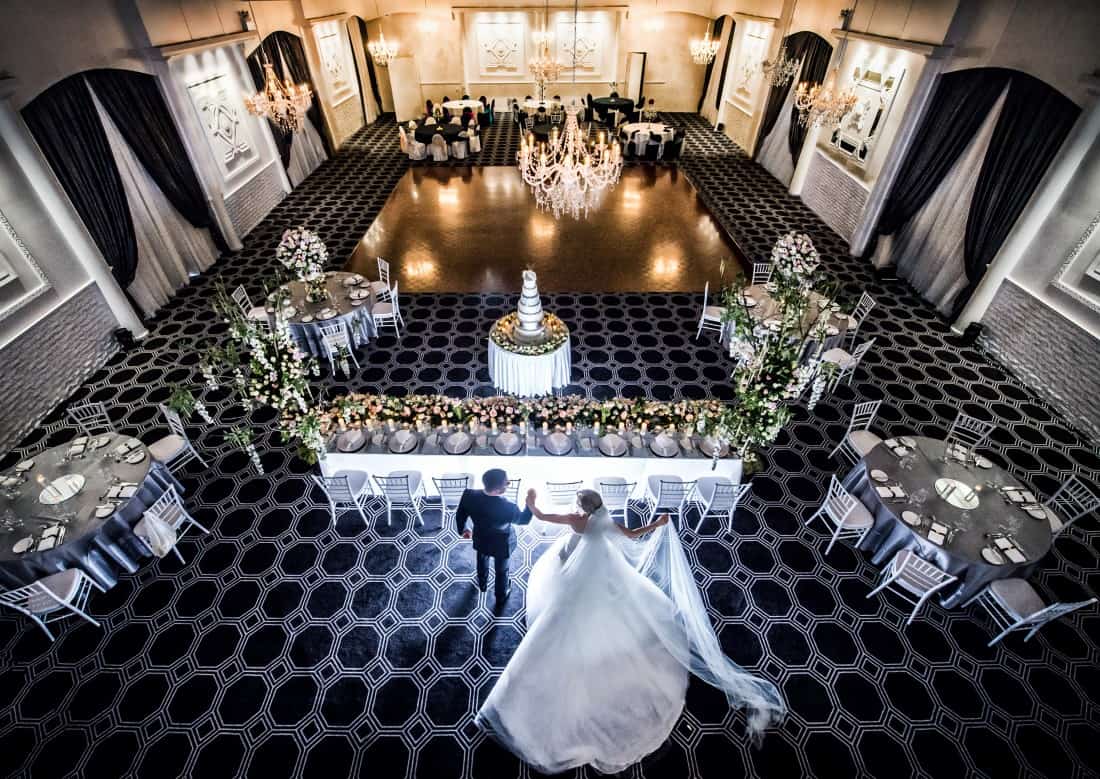Getting engaged is a thrilling time, but it often brings up the big question: How long should we stay engaged? Whether you’re excited to marry quickly or prefer to take your time planning, there’s no perfect timeline. The ideal length of an engagement depends on your personal preferences, the complexity of your wedding plans, and life goals you may want to achieve before saying “I do.”
Some couples opt for a short engagement to get married sooner, while others take a longer engagement to enjoy every detail of the planning process. We’ll walk you through the typical engagement lengths, the benefits and challenges of both long and short engagements, and offer tips to help you figure out the best timeline for you and your partner. Whatever you choose, the key is to enjoy this exciting time together!
What Does an Engagement Period Really Mean?
When I think back to my own engagement, I remember it wasn’t just about choosing the right wedding dress or picking a venue. It was a time for both of us to reflect on what marriage would look like and prepare for our future together.
- Transition from dating to marriage: The engagement period isn’t just about the wedding; it’s about setting the stage for your life together.
- Getting to know each other more deeply: During this time, you’ll discuss important things like finances, where you’ll live, and your long-term goals.
- Strengthening family bonds: It’s a great opportunity to deepen relationships with each other’s families and get comfortable with in-laws.
- Preparing for a life together: It’s the time to set a strong foundation for your marriage by talking about roles, responsibilities, and shared values.
I remember the many deep conversations my partner and I had during our engagement about finances, career goals, and even where we’d like to settle down. Those conversations helped us clarify what was important to each of us and set the foundation for our life together.
The Purpose of an Engagement: Beyond the Ring and Announcement
An engagement is more than just a ring and an announcement; it’s a commitment to the future. It’s your opportunity to start building the life you want to share and prepare for the lifelong commitment ahead.
- Building a future together: The engagement period is about aligning your visions and planning for the life you’ll create together.
- More than just wedding planning: While the wedding is important, this time is about understanding each other’s dreams, values, and expectations.
- A deeper commitment: It’s the start of your shared journey, where you both explore and grow together as a couple.
Take Sarah and James, for example. They used their engagement period not just for wedding planning, but for reflecting on their personal goals and how they’d merge their lives. That gave them the confidence and clarity they needed for their big day and beyond.
How Long Should You Stay Engaged? Average Engagement Timelines Explained
The length of an engagement is one of the most common questions couples ask. While some might want to get married as quickly as possible, others prefer a longer engagement to plan every detail. The truth is, there’s no perfect timeline – it depends entirely on your circumstances, preferences, and what works best for both of you.
- The average engagement length: In the U.S., the average engagement lasts between 12 to 18 months. But this varies depending on factors like location, wedding style, and personal preferences.
- Australian trends: While there’s no strict average for Australian couples, many tend to have an engagement lasting around 12 months, especially in cities like Melbourne, where venues and vendors are in high demand.
- Short vs. long engagements: About 36% of couples in a recent survey had engagements lasting between 6 to 12 months, while 41% extended their engagements beyond 13 months. A shorter engagement can feel rushed, while a long engagement might allow you to plan every detail.
During our engagement, we decided on around a year before the wedding. It gave us enough time to plan, save, and make sure everything aligned with our vision. However, a close friend of mine chose a two-year engagement, which worked out perfectly for her, as she was in the middle of finishing her studies and wanted more time to focus on her career first.
Does a Longer Engagement Mean a Better Marriage?
A longer engagement might give you more time to plan, but does it actually lead to a better marriage? The reality is that the length of the engagement doesn’t directly impact your long-term relationship success. It’s how you spend that time that matters.
- More time to plan: A long engagement gives you more space to focus on the details without feeling rushed. You can enjoy the process of choosing your wedding dress, finding the right vendors, and perfecting the event to match your style.
- Building emotional readiness: For some couples, the longer engagement offers more time to adjust to the idea of marriage and assess compatibility on a deeper level.
- No rush to jump into marriage: If you’re not feeling the pressure to get married right away, a longer engagement can help you both feel more certain and emotionally prepared.
However, I’ve seen couples who had long engagements end up overthinking their decisions, from wedding themes to guest lists. The extra time sometimes led to more stress rather than ease. So, it’s not just about the length; it’s about how you approach it.
Factors That Influence the Length of Your Engagement
The decision on how long to stay engaged isn’t just about the wedding date. Several factors can play a role in determining the ideal length for your engagement. Whether it’s planning complexity, personal goals, or even the availability of your favourite vendors, these elements can all affect your timeline.
- Wedding Planning Complexity: The bigger the wedding, the more time you might need. If you’re planning a destination wedding or a large-scale event, you might need 18 to 24 months of lead time to secure venues and vendors. More intricate weddings, with custom details or DIY elements, can also extend your engagement period.
- Budget and Savings: If you’re budgeting for your wedding or saving for a new home, a longer engagement allows you to save up over time. This can ease the financial pressure and give you more flexibility when choosing venues or catering options.
- Venue and Vendor Availability: If your heart is set on a specific venue, especially a popular one in Melbourne, like Vogue Ballroom, you might need to book years in advance. Venues and popular vendors (such as photographers, florists, or celebrants) often have their schedules booked up well in advance, requiring a longer engagement to secure your preferred options.
- Personal and Career Goals: Sometimes, life goals come first. If one of you is finishing university, starting a new job, or moving cities, it might make sense to wait before committing to a wedding date. This allows you to focus on personal milestones before diving into the whirlwind of wedding planning.
- Long-Distance Relationships: For couples who have been in a long-distance relationship, a longer engagement can be a good way to work out the logistics of where you’ll live, how often you’ll see each other, and how to make the transition to married life.
I’ve worked with several couples who faced these very situations. For instance, one couple I worked with had a two-year engagement because they were juggling multiple career changes and a big move overseas. They needed that extra time to get their lives in order before committing to a wedding date.
Pros and Cons of Long Engagements: Is It Worth the Wait?
A long engagement—one that spans more than a year—comes with both its benefits and challenges. It’s important to consider what works best for you and your partner before committing to a long engagement.
The Advantages of a Longer Engagement
- More time to plan: Having extra time gives you room to enjoy the planning process. You can consider every detail, from the venue to the flowers, without feeling rushed.
- Better vendor availability: If you’re eyeing popular vendors or high-demand venues, a longer engagement can increase your chances of securing your first choices.
- More time to save: A longer engagement gives you the opportunity to save for the wedding and ensure you’re financially comfortable.
- Relationship growth: Spending more time in the engagement phase allows you to grow as a couple. You can better understand how you’ll handle challenges in your marriage.
- Flexibility for life events: If life throws you curveballs—career changes, moving, or personal challenges—having a longer engagement provides the flexibility to work through these issues.
The Drawbacks of a Longer Engagement
- Increased stress: A prolonged engagement can sometimes feel like an endless cycle of wedding planning, leading to burnout.
- Changing ideas: The longer you’re engaged, the more likely you are to rethink your decisions, from the wedding theme to the venue or guest list.
- Pressure from family and friends: Some couples feel pressure from family or friends to hurry up and get married, especially if they’ve been engaged for a while.
- Loss of excitement: After a long engagement, the excitement can begin to fade as time passes. What started as an exciting announcement might turn into a distant memory, and the momentum can slow down.
- Potential complacency: There’s always a risk that an extended engagement might lead to complacency, with couples putting off important decisions or losing sight of the big day.
When I worked with a couple from Geelong who had a two-year engagement, they initially loved the idea of having extra time to plan. However, as the years went by, they started to feel more pressure from friends and family to set a date and stick with it. The prolonged planning phase eventually started to feel more like a chore, and they were relieved when the day finally arrived.
The Perks and Pitfalls of a Short Engagement
A short engagement, typically between six months to a year, has its own set of benefits and challenges. While it may seem like a fast track to married life, it comes with its own unique dynamics that couples should consider.
Benefits of a Short Engagement
- Quick commitment: A short engagement means you’re getting married sooner, which can be appealing for couples eager to start their married life. If you know you’re ready, there’s no need to wait.
- Efficiency and decisiveness: With less time to plan, couples often make quick decisions, which can help avoid overthinking or second-guessing wedding details. You might find yourself picking your venue, dress, and vendors faster, without the stress of prolonged deliberation.
- Less stress, potentially: While wedding planning can be stressful, a shorter engagement forces you to focus on what matters most and skip over the small, less important details. For some, this less-is-more approach can actually lower stress levels.
- Cost savings: A short engagement can sometimes save money, as there’s less time to add extra details or splurge on expensive items. You might also find last-minute deals on venues or vendors if you’re booking at the last minute.
- Leverage current trends: Short engagements allow couples to take advantage of current wedding trends without worrying about them going out of style. You can plan based on what’s popular at the moment, rather than having to adapt to changing trends over time.
I have a close friend who got engaged and married within just eight months. They were able to keep things simple, and it worked out perfectly for them. They chose a venue, secured their vendors, and kept everything streamlined. The wedding wasn’t over-the-top, but it was meaningful and exactly what they both wanted.
Challenges of a Short Engagement
- Rushed planning: With limited time, it can feel like you’re constantly playing catch-up, trying to book vendors, choose decor, and make decisions in a hurry. This can be stressful, especially if you’re juggling work or school commitments.
- Limited vendor availability: A short engagement might limit your options when it comes to vendors or venues. Popular Melbourne venues like Vogue Ballroom or the Royal Melbourne Yacht Squadron can book out well in advance, so you may have to settle for your second or third choice.
- Lower guest attendance: If your wedding date is set quickly, guests may struggle to make plans, particularly if they need to travel from out of town. You might find that some of your closest friends or relatives are unable to attend.
- Financial pressure: With a short engagement, there’s less time to save. This could lead to more stress when it comes to covering the costs, especially if you’re planning on having a large guest list or splurging on extras like professional photography or catering.
- Less time for DIY: For couples who want to add personal touches to their wedding—like hand-made decorations or custom invitations—a short engagement can leave little time for these details. You may need to make compromises on DIY projects.
For example, I once worked with a couple who had a six-month engagement. They were on a tight schedule, but they managed to pull it off. While they didn’t have time for many DIY elements, they focused on keeping things simple yet beautiful. They ended up with a wedding that was intimate, with everything they loved, even though it was a bit of a whirlwind.
How to Decide the Right Engagement Length for You and Your Partner
Choosing how long to stay engaged is a deeply personal decision. The ideal length depends on your priorities, preferences, and where you are in your life. That said, there are several factors to consider as you make this decision together.
Have Open and Honest Conversations
The most important thing is to discuss your expectations and desires with your partner. Here are some things you might want to consider together:
- The type and scale of wedding you want: Do you want a grand, multi-day celebration, or a more intimate gathering? Bigger weddings often require more time for planning.
- Your budget: How much do you need to save, and how long will that take? You don’t want to rush into debt to fund your wedding.
- Vendor availability: Are your dream vendors available, or do you need extra time to book them? Popular venues and suppliers may need up to 18 months’ notice, especially in peak wedding season.
- Guest list and travel needs: If your guest list is large or many are from out of town, you’ll need extra time to send invitations, book accommodation, and arrange travel.
- Personal and career goals: Are you both in a stage of life where you need time to focus on career or personal goals before tying the knot? If so, a longer engagement might be necessary.
- How much time you need to grow as a couple: If you’ve been together for a while but want to deepen your connection before marriage, a longer engagement might make sense.
I remember having a long chat with my partner about what we both wanted out of the engagement. We both felt ready to marry, but we also knew we wanted time to make our wedding perfect. After considering our goals and priorities, we decided on a 12-month engagement. This gave us enough time to save, plan, and enjoy the process, without feeling rushed.
Get Advice from Professionals
If you’re unsure, it’s worth seeking advice from a wedding planner or relationship expert. Wedding planners, in particular, can help you determine what timeline will work best based on the size of your wedding, vendor availability, and personal goals.
Enjoy Your Engagement Period No Matter the Length
At the end of the day, there is no “one-size-fits-all” answer to how long your engagement should be. The right length is whatever works best for you and your partner, whether that’s a quick engagement or one that spans over a year or more.
Key Takeaways
- The engagement period is about more than the wedding: It’s your chance to build a foundation for your future together, plan your wedding, and grow as a couple.
- Focus on what matters: Whether your engagement is long or short, make sure it aligns with your goals and priorities. Don’t let external pressures dictate your timeline.
- Make it enjoyable: Don’t get so caught up in the planning that you forget to enjoy the journey. Take time to celebrate the moment with your partner, friends, and family.
In my own experience, the engagement period was a mix of excitement, reflection, and practical planning. The extra time we took to get clear on our future together made the wedding day itself feel like the beginning of something special, rather than just a finish line. Whether you decide to have a short or long engagement, remember, it’s not just about the wedding day—it’s about the life you’re about to start together.




